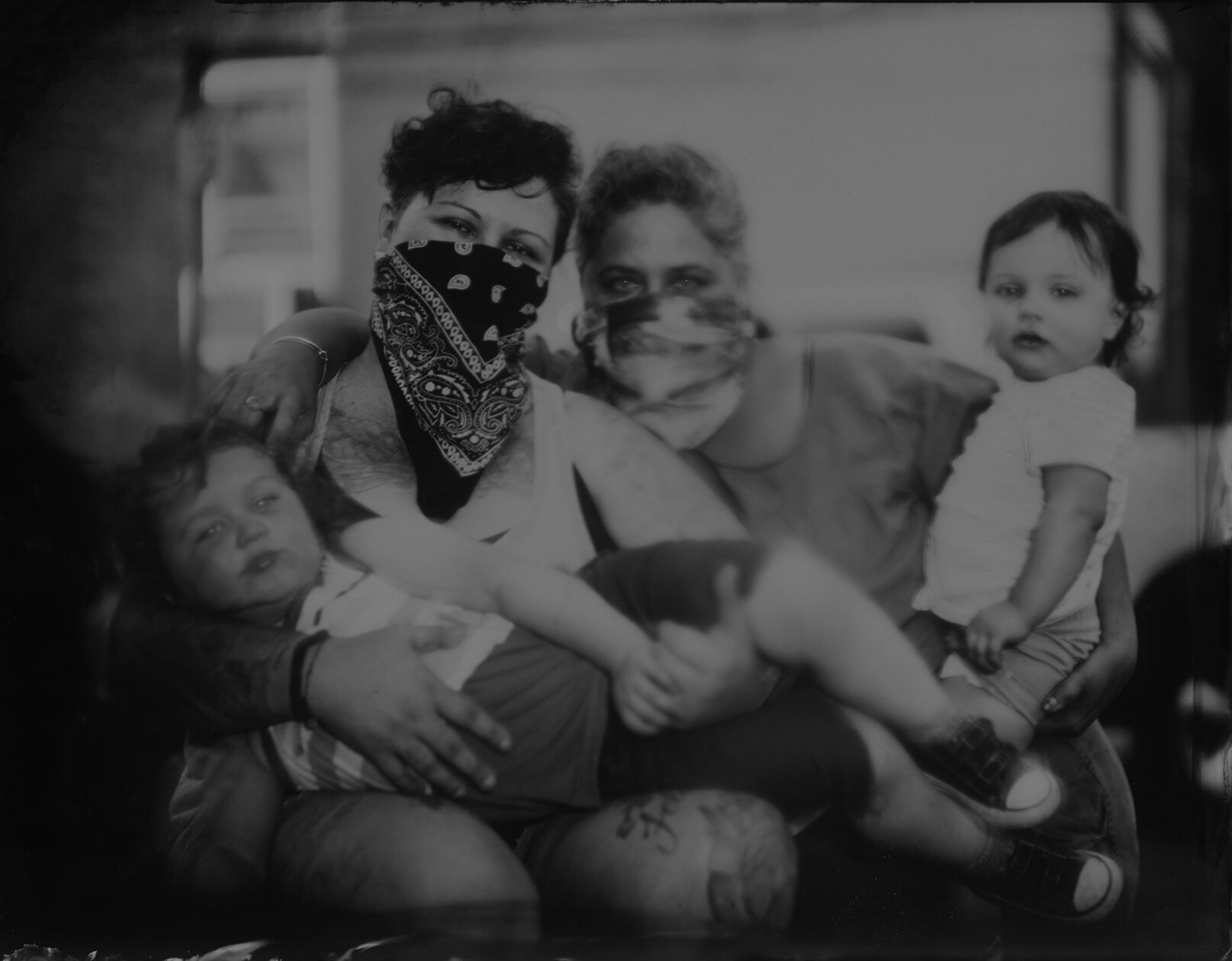Dese’Rae & Felicidad with their children Theo and Gus, 2020. © Helen Maurene Cooper
Philadelphia based photographer Helen Maurene Cooper uses the 19th-century wet plate collodion process to make socially distant Ambrotype street portraits of her neighbors during quarantine.
Helen Maurene Cooper’s photography is driven by personal connection and relationship building. In long-form documentary projects, she has photographed drag queen culture, Floridian mermaid performers, and has collaborated on portraits with Black and Latinx-owned specialty nail businesses on Chicago’s West Side. Feminism, entrepreneurship, and the power of adornment are central to her work.
Cooper moved from Chicago to Philadelphia’s East Kensington in 2019. Months later, as Covid 19 swept the nation, the challenge of engaging a new creative community and balancing parenthood (Cooper has an 11-month old daughter) and professional demands intensified. How does a photographer who relies on the intimacy of portraiture navigate these limitations? How does one get to know their neighbors when all interactions must take place at a mandatory six-foot distance, our faces obscured by masks?
Cooper takes this challenge in stride. Setting up her 8x10 camera just beyond her front door, she commits her neighbors’ images to history on wet collodion plates. People of the Pandemic, River Wards - Philadelphia is a project for the Covid age, calling to mind the visual traces of historical crises including the Civil War and the 1918 influenza epidemic that tested American resolve.
We spoke about producing a mature body of work that reflects seven years of working with the collodion process, social distance portrait photography, how connections are made amidst pandemic, and how the white gaze might shape this moment of social reckoning.
Roula Seikaly in conversation with Helen Maurene Cooper


